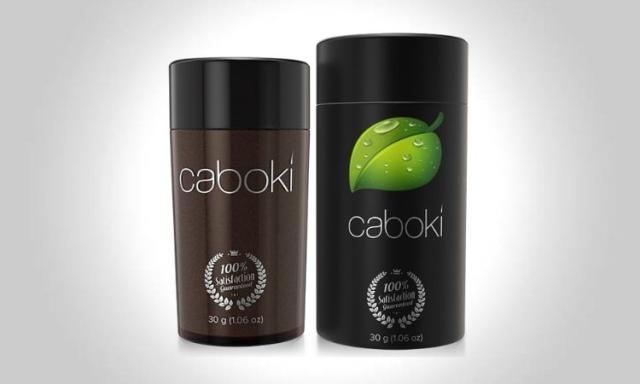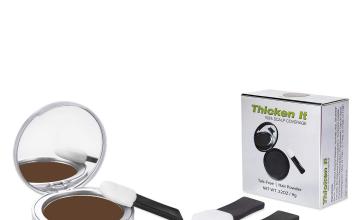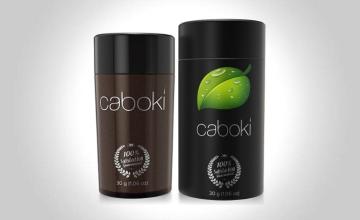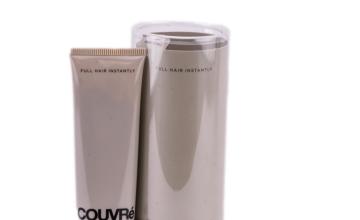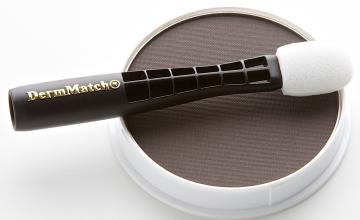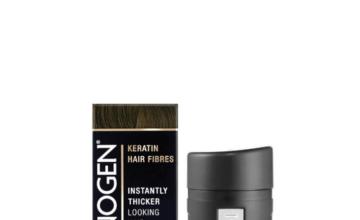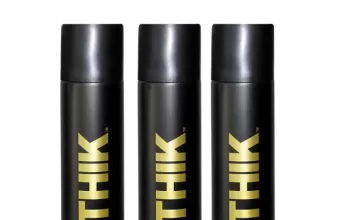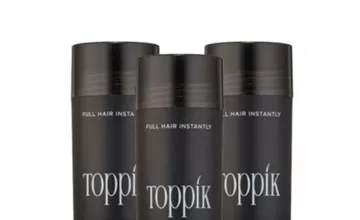For many hair loss suffering men and women, topical concealers are a necessary aspect of the "daily routine." Usually composed of hair shaft adhering microfibers or darkening cream, concealers help balding men and women both camouflage areas of noticeable baldness and increase the apparent density of thinning hair. Below, we provide our readers with a product review of the new and popular hair loss concealer Caboki.
Caboki was released back in 2005 but is only just now receiving more attention, most likely due to increased advertising. Like others before it, Caboki concealer claims to be a "hair loss breakthrough". Despite ambitious promises, Caboki's claims leave several unanswered questions: is Caboki really a breakthrough concealer? How does it compare to other, similar products like Toppik, DermMatch and COUVre? Is Caboki a worthwhile product for purchasing, or will it fall from grace like other alleged "breakthrough" hair loss miracles before it?
While many products, such as "Toppik" (a popular microfiber-style concealer) and "Couvre" (a concealing cream) are popular and trusted within the hair loss community, new, unproven concealers arrive on the market every day. What's more, many of these new concealers try to "best" the products currently offered and claim to camouflage hair loss in a way "never seen before." However, as with many alleged miracle cures, these products often fail to meet expectations and leave hair loss sufferers disappointed and discouraged. So let's explore how Caboki works to conceal hair loss below.
Caboki is comprised of a series of charged microfibers that, when applied to the scalp, tightly bind hair shafts and create a denser, fuller appearance. According to the manufacturer, these microfibers are comprised of two different elements: Moroccan Gossypium Herbaceum fiber and iron oxide-based natural (mineral-based) colorants. The makers of Caboki claim these elements allow the product to create a natural, healthy appearance, capable of withstanding harsh lighting conditions, sweat, wind, and rain.
However, because these elements have been used in other concealer products (Toppik particles, for example, are both charged and made from natural keratin), Caboki still must demonstrate why it's revolutionary. So, what makes Caboki a "hair loss breakthrough?" According to the manufactures, Caboki differs from other concealers in the following ways:
- Caboki particles, unlike other microfiber concealers, are negatively, not positively charged. Allegedly, positively charged particles (usually made from wool fibers) possess a greater tendency to repel and oppose not only each other, but also the positively charged hair shafts. Because of this, when the particles attach near each other on a hair shaft, they are more likely to repel and detach. According to Caboki creators, negatively charged fibers (made from Moroccan Gossypium Herbaceum fiber) do not experience this intense phenomenon, and create a much greater (200%), electronically attractive (negative to positive), bond. If this is true, Caboki microfibers should bind and adhere to hair shafts with a much stronger, more permanent affinity.
- Because Caboki particles create a stronger charged bond, the thicker, more volumized hair shafts are likely to stand erect and less non-bonded concealer will collect on the scalp. This combination, according to Caboki, will eliminate the "dull, flat" appearance associated with other concealer products.
- By only utilizing natural elements (Moroccan Gossypium Herbaceum fibers and iron oxide colorants), Caboki avoids some of the potentially harmful synthetic dyes, fillers, and artificial preservatives used in other concealer products.
So, it's now clear why the manufacturers of Caboki believe it is a superior product, but does this mean Caboki is a legitimate hair loss concealer? Does it truly outshine other concealer product currently on the market?
While the product is still fairly new, most anecdotal experiences and testimonials from real hair loss suffering men and women are positive. Most individuals believe the negatively charged Caboki particles bind strongly to the positively charged hair shafts and create a longer-lasting increase in density. Furthermore, the particles seem to be more resistant to potentially damaging elements like water, sweat, and wind. Having said that, many individuals report some common problems experienced with other concealer products – concealer wiping off on pillows and clothes, some smearing with sweat, and difficultly creating a natural appearance in the hairline. However, these same individuals claim the problems occur less frequently with Caboki. Altogether, it's likely that Caboki is both a helpful hair loss concealer and equivalent to other products currently on the market. While it is clear that Caboki does possess some advantages and interesting claims, it could be difficult to quantify whether it truly exceeds or simply meets the standard set by other available hair loss concealers. Truthfully, only time and the opinion of hair loss sufferers will determine whether Caboki lives up to its claims and defines itself as a legitimate concealer breakthrough.
